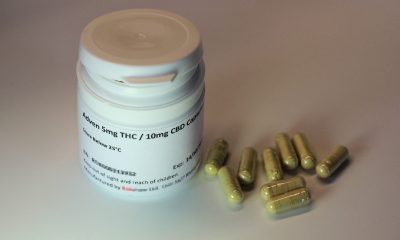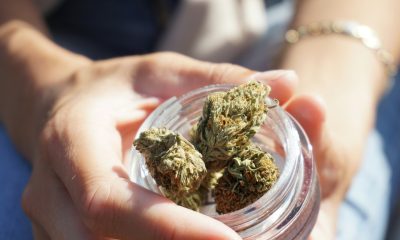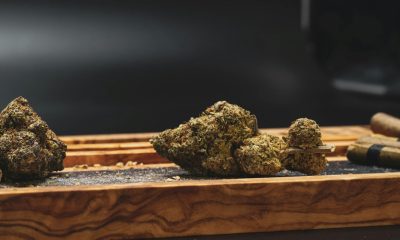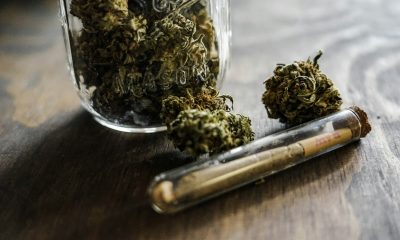Cannabis
Brazilian health authority approves registration of cannabis medicines
The Brazilian Health Regulatory Agency Anvisa has approved new regulations for cannabis-based products in the country. Anvisa aims to ensure a minimum guarantee to the consumers. Marketing of these products in Brazil will be exclusively allowed in pharmacies and only by prescription. The regulation is specific for products intended for the medical treatment of humans, and not for veterinary use.

The Anvisa Collegiate Board of Directors has approved the new regulation for cannabis products in Brazil. The text includes the necessary requirements for their regularization in the country and establishes quality parameters.
HEMP.IM is a mobile application that is exclusively dedicated to hemp and cannabis news as well as the marijuana industry. The App focuses on the latest breaking news, economic trends, and medical breakthroughs.
New class of products
Under the new agreement companies wanting to operate in Brazil will need to focus on proving their safety record. The proposals will bring cannabis under a similar regime as other medicinal products.
The Agency’s challenge to regulate cannabis was to find a way to guarantee access, through pharmaceutical assistance, ensuring a minimum guarantee for cannabis users, both in the sense of effectiveness and safety.
The new regulatory framework creates a new class of products subject to firm standards and quality control: cannabis products, a term that is being used internationally with authorizations from different health authorities around the world.
Product quality
In addition to specific operating authorizations, the approved regulation demands a Certificate of Good Manufacturing Practices issued by Anvisa. The requesting company is obliged to have a set of data and technical information that demonstrates the quality of the product, specification limits and quality control methods utilized, as well as stability studies and periodic reports of use evaluation.
Background Measures
Any company responsible the Sanitary Authorization of their cannabis product to Anvisa must have:
- Company Operation Authorization (AFE) issued by Anvisa with the activity of manufacturing or importing drugs;
- Special Authorisation (SA);
- Certificate of Good Manufacturing Practices (CBPF) of medicines for the manufacturer of the product;
- Good Practices of Distribution and Storage of medicine;
- Technical and scientific rationale for the cannabis product formulation and the route of administration;
- Technical documentation of product quality;
- Operational conditions to carry out quality control analysis in the Brazilian territory;
- Ability to receive and handle adverse effect notifications and technical complaints about the product;
- Knowledge of the concentration of the main cannabinoids present in the formulation, among them CBD and THC.
Labeling and Packaging
The labeling and packaging of the product may not contain:
- Designations, geographical names, symbols, figures, drawings or any indications that allow false interpretation, error or confusion as to the origin, nature, composition or quality, that attribute to the purposes or characteristics of the product.
- The terms drug, medicine, herbal medicine, supplement, natural, or any other similar terms.
- Any indication as to the destination of use, especially including therapeutic or medicinal claims directly or indirectly.
- Labels on packages of cannabis products must have a horizontal black band covering all sides of the package.
- On the black belt of cannabis products, containing up to 0.2% THC must be included the sentences, in upper case, “SALE ON MEDICAL PRESCRIPTION” and “ONLY SALE WITH REVENUE RETENTION”.
- On the black belt of cannabis products, containing more than 0.2% THC must be included the sentences, in upper case, “SALE ON MEDICAL PRESCRIPTION” and the “USE OF THIS PRODUCT MAY CAUSE PHYSICAL OR PSYCHICAL DEPENDENCE”.
__
(Featured image by Kelly Sikkema via Unsplash)
DISCLAIMER: This article was written by a third party contributor and does not reflect the opinion of Born2Invest, its management, staff or its associates. Please review our disclaimer for more information.
This article may include forward-looking statements. These forward-looking statements generally are identified by the words “believe,” “project,” “estimate,” “become,” “plan,” “will,” and similar expressions. These forward-looking statements involve known and unknown risks as well as uncertainties, including those discussed in the following cautionary statements and elsewhere in this article and on this site. Although the Company may believe that its expectations are based on reasonable assumptions, the actual results that the Company may achieve may differ materially from any forward-looking statements, which reflect the opinions of the management of the Company only as of the date hereof. Additionally, please make sure to read these important disclosures.
First published in SECHAT, a third-party contributor translated and adapted the article from the original. In case of discrepancy, the original will prevail.
Although we made reasonable efforts to provide accurate translations, some parts may be incorrect. Born2Invest assumes no responsibility for errors, omissions or ambiguities in the translations provided on this website. Any person or entity relying on translated content does so at their own risk. Born2Invest is not responsible for losses caused by such reliance on the accuracy or reliability of translated information. If you wish to report an error or inaccuracy in the translation, we encourage you to contact us.

-

 Crypto6 days ago
Crypto6 days agoCrypto Markets Under Pressure as Vitalik Buterin Sells 17,000 ETH
-

 Markets2 weeks ago
Markets2 weeks agoWeather-Driven Supply Outlook Lifts Coffee Markets in Brazil and Vietnam
-
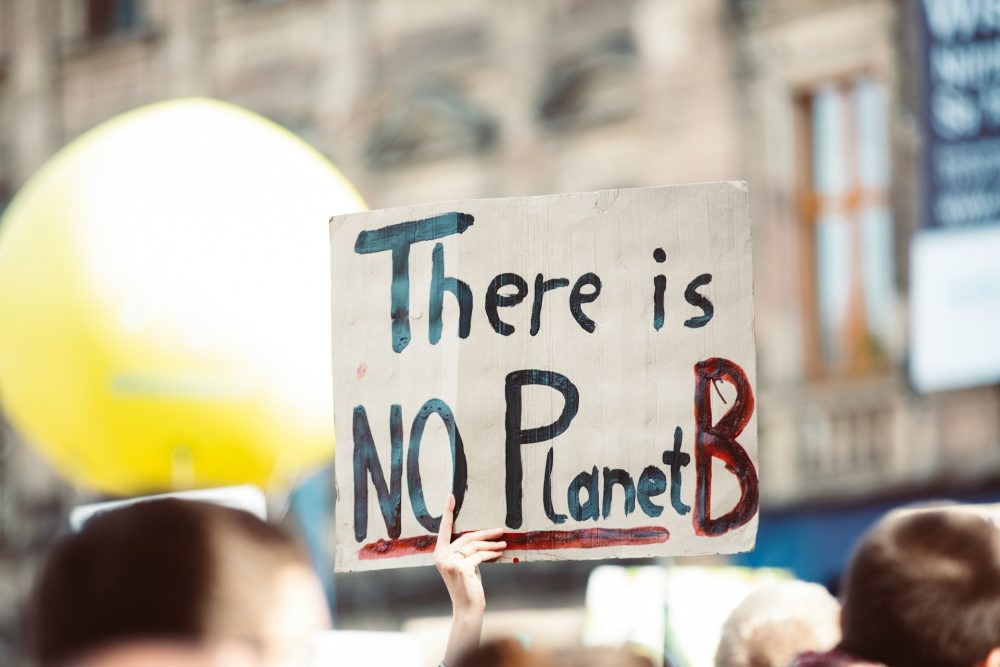
 Impact Investing2 days ago
Impact Investing2 days agoGreen vs. Brown Stocks: Climate Policy, Capital Costs, and the Battle for Market Returns
-

 Business2 weeks ago
Business2 weeks agoTopRanked.io Weekly Affiliate Digest: What’s Hot in Affiliate Marketing [Best Technology Affiliate Programs]
